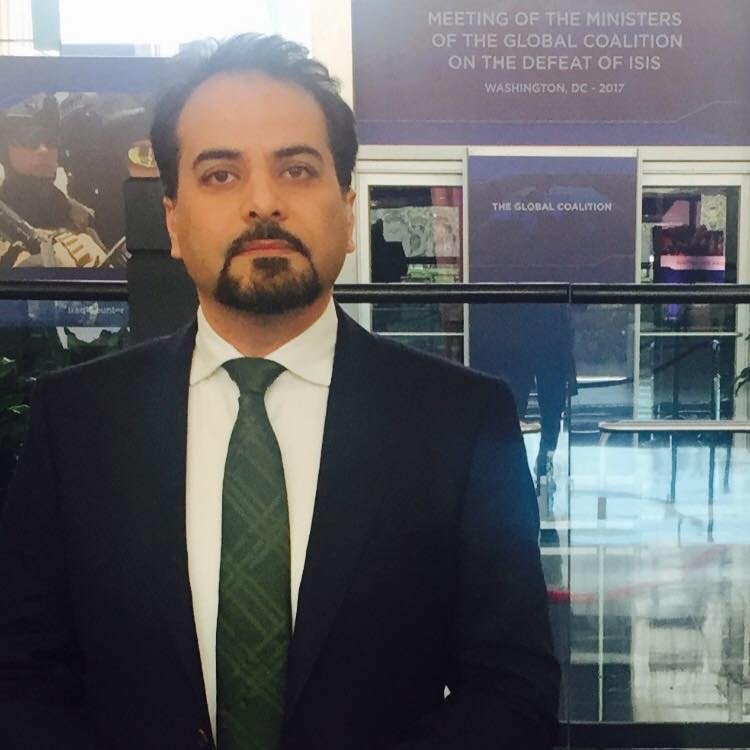“Afghan government’s ceasefire has broken momentum of Taliban’s summer offensive”

Idrees Zaman is a Kabul-based researcher, peace-building practitioner and political analyst. He is the Managing Director of Cooperation for Peace and Unity (CPAU), Afghanistan’s first independent research think tank.
Q. Afghan government and Taliban recently observed an unprecedented Eid ceasefire but the latter refused to extend it beyond three days. President Ghani who offered to extend the ceasefire unilaterally termed it 'successful'. What are your observations on it?
A. It was a successful initiative by President Ashraf Ghani. This not only strengthened President’s political position at home, but also has broken momentum of Taliban’s so-called ‘summer offensive’, this year named ‘Operation Khandaq’. In terms of human lives too, according to an independent civilian protection observation group, in the second half of the month of June, civilian casualties had an unprecedented 100 percent drop. Although the Taliban have ended the ceasefire, reports from the field say that local Taliban field commanders have declined going back to fighting in many areas and are thus in talks with local community elders to agree on arrangement for a locally governed ceasefire.
Q. Taliban have time and again said that they are willing to talk directly to Washington but not the government in Kabul. What is the message they are trying to convey? And is the rivalry between Taliban and ISIS a reality or a myth?
A. Basically, ISIS is a myth in Afghanistan. It is a morphed group of disgruntled Taliban, LeT, JeM, AITM, etc who at times operate under the banner of ISIS. Their numbers couldn’t be more than 2000 at most. Research has not found any link between the Afghanistan based ISIS and the mother organization in the Middle East. As for the Taliban’s insistence on parleys with U.S. only, it is to undermine legitimacy of the government in Kabul as Taliban movement likes to call itself the ‘Emirate of Afghanistan’. This issue also has regional dynamics including role of Pakistan in supporting Taliban and their concerns of losing strategic influence in Afghanistan.
Q. Do you think President Ghani-led government in Kabul has a blueprint to bring peace to Afghanistan?
A. I don’t think the government has a blue print, nor do blue prints work in resolving conflicts such as the one we are entangled in. Having said that, I believe President Ghani has come up with out-of-the-box and unorthodox ideas to eventually resolve the conflict.
Q. How important is the role of Pakistan in ending the longstanding war in Afghanistan?
A. Pakistan can play a critical role in resolving the issue by bringing the Taliban to the table, eliminating their sanctuaries and support network. Past events have shown that the Taliban leadership, including their Quetta, Peshawar and Miranshah shuras, Osama Bin Laden, Mullah Omar, Mullah Mansoor, Siraj Haqqani, Ibrahim Haqqani etc have been living in safe havens in Pakistani cities. Insurgencies can last for decades if the core leadership has a safe place to command and operate from. This has increased the importance of Pakistan in the equation.
Q. Many key political figures that formed the core of Ghani's team in 2014 like Rashid Dostum, Ahmed Zia Massoud are no longer with him. Do you think it will affect his winning chances in next election?
A. President Ghani has skillfully played political games with these seasoned politicians and has marginalized them. Dostum technically is still with President Ghani and may formally rejoin him around the coming presidential elections, as the latter has no better choice. As for as Ahmed Zia Massoud is concerned, he is an isolated figure with no following and vote bank. The only disgruntled yet powerful figure that could be counted on is Atta Mohammad Noor. Being a pragmatic politician, I wouldn’t be surprised is he also joins Ghani, if not soon, maybe around the presidential elections.
Q. The war in Afghanistan has entered 17th year but most of the problems continue to persist. Do you think the international community has failed to achieve its objectives in Afghanistan, be it counter terrorism, counter narcotics or state building exercises?
A. The international community has been saying for a long time that they are not here for state building. As for the reconstruction, we had two problems which hampered good work i.e. bad governance and the ongoing insurgency and war. War has swallowed a lot of good opportunities. It has created a burgeoning drug trade and corruption.
Q. The ambitious Chabahar Port project has brought Afghanistan closer to India and Iran and reduced Afghanistan's overwhelming dependence on Pakistan. Do you think it can be a game changer in the region?
A. It definitely could be a game changer. The recent announcement by the U.S. in New Delhi that they wouldn’t oppose India’s role in that port is a welcome sign.
Leave a Comment